
Ready to find the perfect college for all agricultural and farming majors? Be sure to check out our top 15 schools with fantastic college farms.
Top 5 College Farms
| Rank | School | Location |
|---|---|---|
| 1 | University of California – Davis | Davis, California |
| 2 | Oregon State University | Corvallis, Oregon |
| 3 | Clemson University | Clemson, South Carolina |
| 4 | Dartmouth College | Hanover, New Hampshire |
| 5 | Yale University | New Haven, Connecticut |
The Top 15 College Farms in 2021
University of California – Davis
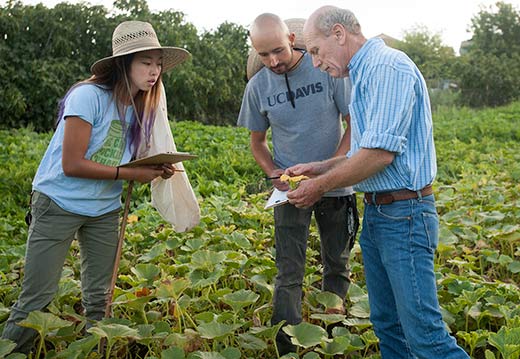
This amazing farm is established where “students work to create, maintain, and explore sustainable food systems.” This seven-acre farm is located just west of the UC Davis Central campus, and was established over 30 years ago. They house two different gardens: one that focuses on organic vegetable production, and the other a sustainable garden to promote ecological agriculture. As a student at UC Davis, you can volunteer, intern for credit, or work on the farm as a full-time student employee. UC Davis even offers formal courses out on the farm. All produce harvested from the UC Davis farm is either sent to UC Davis Dining Services, or sold at the local UC Davis Farmers market.
Oregon State University
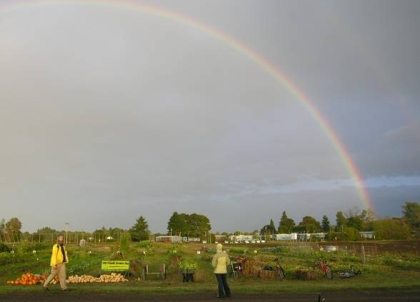
The OSU Organic Grower’s Club is entirely operated by student volunteers. It began in 2000 to give agricultural science majors an opportunity to learn, research, and educate others on organic agriculture. This non-profit Club farm is located on 2 acres of Oregon State University’s agricultural research land. Many different vegetables and fruits are grown on the farm, and then sold to the on-campus community. All the proceeds go directly back to farm operations, to fund summer internships, “and are used to support many philanthropic activities in the Corvallis area.”
Clemson University
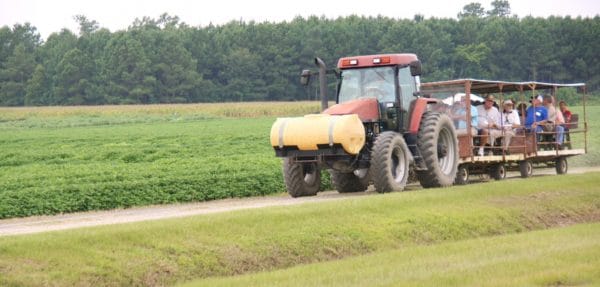
Clemson University’s farm, The Clemson Student Organic Farm Project, occupies approximately 15 acres of the Calhoun Field Laboratory. Their farm is relatively young, having been established in 2001. In 2005, they were certified organic by the National Organic Program, which “prohibits the application of synthetic fertilizers and pesticides.” The SOF Project is operated heavily by students in “all aspects of farm management, production, and marketing.” They offer research opportunities for graduate students at Clemson University, as well as providing hands-on experience and apprenticeships to undergraduate students. Like the other farms on this list, Clemson University aims to expand partnerships with local organizations in their community that would promote “profitable and environmentally-friendly farming enterprises.”
Dartmouth College
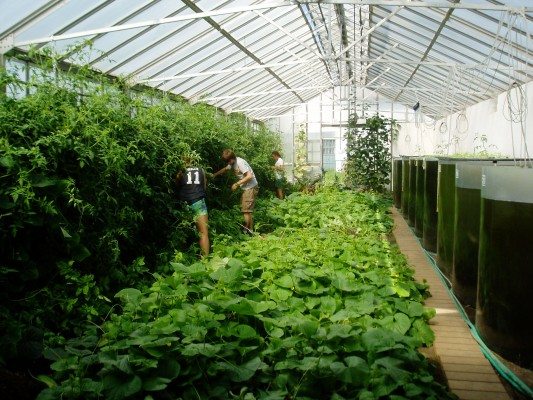
The Dartmouth Organic Farm is located about 3 miles north of Dartmouth College campus. They operate on 2 acres of land, growing flowers, herbs, and vegetables. Their farm is entirely student run with only the advisement of a farm manager. Dartmouth Organic Farm’s aim is directed at sustainable agriculture, which gives students the opportunity to help support global sustainability. Internships are available to students that apply; these internships may lead way to later campus employment.
Yale University
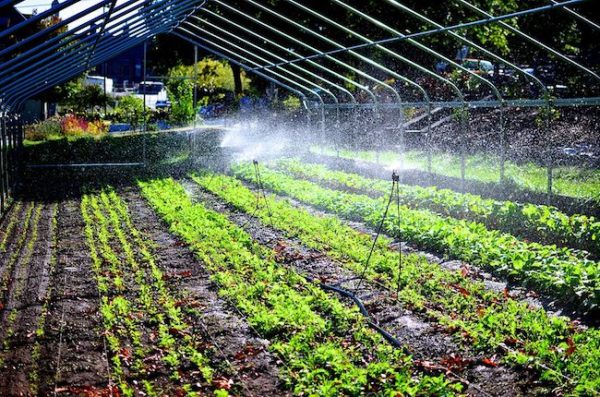
The Yale Sustainable Food Program encourages interdisciplinary learning; they pursue to inspire crucial research “that addresses our pressing need for more sustainable food systems.” Their program oversees two farms used for research and learning – one on Yale’s main campus, and the other at Yale’s West Campus. Their main campus farm is roughly 1 acre; items are grown all-year round by way of heated high tunnels. The West Campus farm is open to the community year-round; their mission is to connect Yale’s students to the vast opportunities in food, health, and environmental studies and practices. International internships are also available at Yale University’s Sustainable Food program.
Delaware Valley University
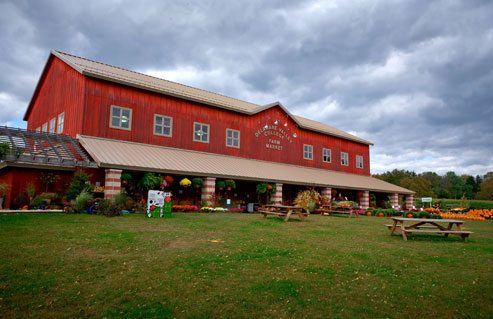
The Roch Center for Sustainable Agriculture is a wonderful program that serves as a living laboratory for research for students majoring in sustainable agriculture. The farm is focused on a production system built on three principles: long-term profitability, good stewardship of environmental resources, and high quality of life for the farmer and the community. On their farm, they perform lab projects, faculty research, and class demonstrations. There are summer employment positions available, as well as volunteer experience for students of Delaware Valley University. Almost all of their produce is sold at the local Market at DalVal.
Hampshire College
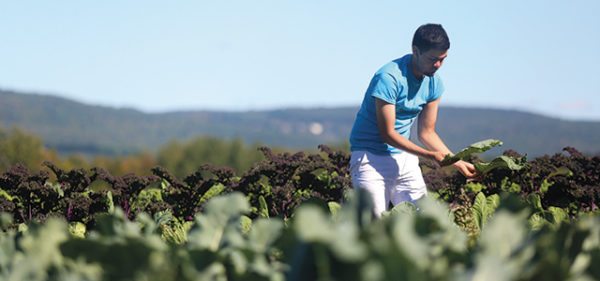
The Hampshire College Farm has been integrated with Hampshire’s academic and social justice mission since it was founded in the 1970s. Its 80 acres dedicated to vegetable and livestock production are a “living lab” supporting rigorous teaching and research opportunities for students and faculty and serving as a model for ethical land stewardship and ecological practices. Half of its production feeds the campus dining commons, engaging students in all aspects of the food system, from farm to fork. Its Community Supported Agriculture program was developed by students in 1992, ahead of its time, and serves the wider Hampshire community.
Prescott College
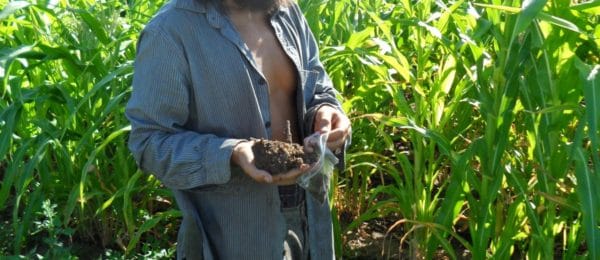
The Jenner Farm at Prescott College is 20-acres of “of rich alluvial soils bordered by towering cottonwood and mesquite trees.” This farm offers a hands-on curriculum, promoting a focus of Natural Systems Agriculture; agricultural systems designed to mimic natural plant ecosystem. The classes offered on the farm are focused around regionally adapted crops, the maintenance of genetic diversity, and soil fertility using minimal to no purchased inputs. The Jenner Farm is a member of the Organization of Biological Field Stations.
California Polytechnic State University – San Luis Obispo
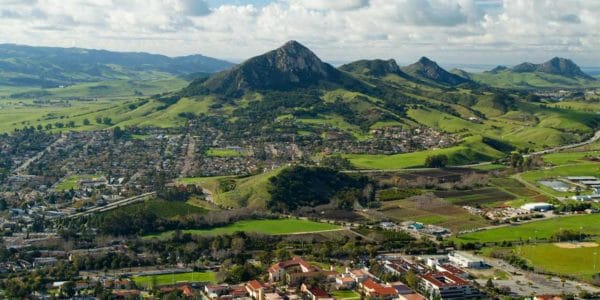
The Cal Poly Organic Farm is located on 11-acres, and is operated by the Horticulture and Crop Science Department. They are certified organic by the CCOF (California Certified Organic Farmers). The farm provides undergraduate students hands-on experience with organic, sustainable, farming and gardening. The farm is operated and managed with a hybrid of faculty, staff, and student support. Cal Poly SLO’s Horticulture and Crop Science Department, College of Agriculture, and the Food and Environmental Sciences supports the organic farm. Cal Poly produces dozens of crops that are sold directly to local farmers markets, campus markets, and to other local vendors and restaurants. All other produce is then donated to the Food Bank.
University of California – Santa Cruz
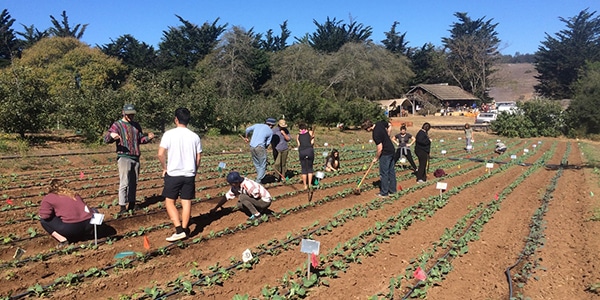
UC Santa Cruz’s Center for Agroecology and Sustainable Food Systems is a research program dedicated to “increasing ecological sustainability and social justice in the food and agriculture system.” The center operates a 3-acre garden, as well as a 30-acre farm. This farm is operated by a blend of social sciences staff, faculty partners, and students. As a student at UC Santa Cruz, there are many opportunities for both education and research. This center also offers many opportunities for apprenticeships and training in the techniques of agroecology and organic farming. One of the key missions of the Center for Agroecology and Sustainable Food Systems is to serve the public; they offer classes, courses, and tours to the surrounding Santa Cruz community. Food from the farm and garden also helps support UC Santa Cruz’s work in ensuring food security for all of its students through various hunger-free campus efforts, including food pantries and dining hall programs.
University of Minnesota Duluth
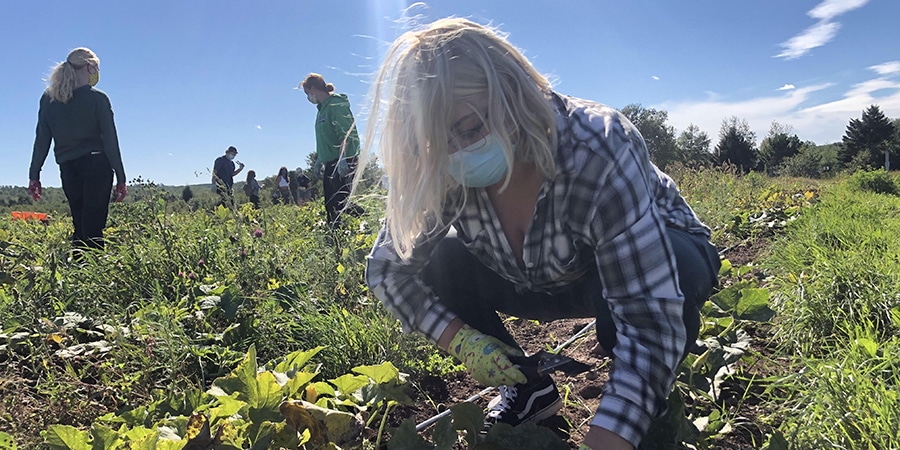
The UMD Land Lab is a food justice and environmental research and outreach center. The purpose of the UMD Land Lab is to explore how to create a food system that meets the needs of all community residents and to serve as an incubator for student, community, and university interaction with the Northland’s natural systems. They also have an apiary, a high tunnel, student internship and undergraduate research opportunities, up and coming edible forest garden, and a community supported agriculture program.
The 30 acre UMD Land Lab includes 10 acres of organically managed vegetable production fields amid a biodiverse landscape. An additional 80 acres of surrounding university land is devoted to ecological research. More than a thousand students annually participate in the experiential learning activities at the UMD Land Lab. UMD’s Dining Services supports personnel needs and purchases 90% of the organically grown produce which is served on campus, creating an intrapreneurial vehicle linking academics and operations as we lower our institutional ecological footprint. A host of community and governmental organizations collaborate on site for social-ecological change activities and professors from across campus collaborate on food, water, energy and biodiversity research. To add, UMD hosts several green programs including; the Student Sustainability Coalition, Net Impact, Green Revolving Fund, Bike to Campus, and Sustainability Inspiration Awards.
Evergreen State University
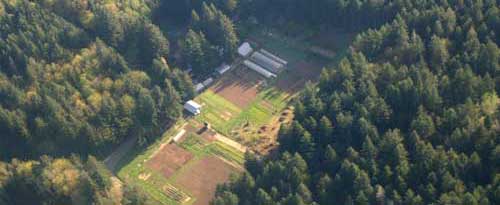
Evergreen State University is more or less a living laboratory for students in itself. Their Organic Farm is connected to the main campus by two trails that cut through the campus forest. The Organic Farm is a small-scale, fully organic farm that serves as a research facility with a focus on organic agriculture. The farm produces fruits, vegetables, and sheep. The farm is certified organic by the Washington State Department of Agriculture. They work diligently to maintain appropriate water use, reduce erosion, practice integrated animal management, pest management, and biodiversity conservation. The farm is supported by staff and faculty, but students enrolled in the Practice of Organic Farming program (POF) work as interns on the farm. The Evergreen State University is connected to its community by offering Community Gardens, and a student activities group that provides gardening space to the Olympia and Evergreen communities.
Warren Wilson College
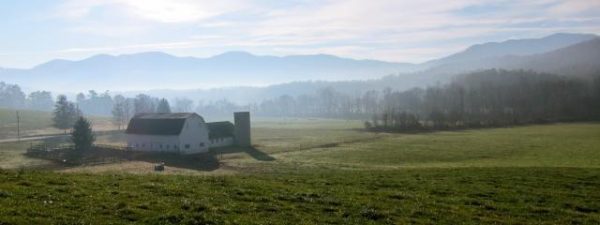
Warren Wilson College is one of seven federally-recognized work colleges in the nation. This means that students work on their campus 15 hours a week providing for the essential functions and needs of the college. That said, the Warren Wilson College Farm implements their mission of work, service, and academics by providing a student run agricultural operation. Their farm is committed to creating sustainable farming practices. They have one of the largest farms on this list, sizing in at 275-acres. It is divided among 25 different fields specializing anywhere from livestock to mixed-crop production. This college boasts their high grain yields, as well as the absence of pesticides and herbicides throughout production. In 2002, they were awarded the non-profit Steward of the Year award by the Carolina Farm Stewardship Association. They pride themselves in their strong work ethic, as well as their rich agricultural tradition dating back to 1894.
University of New Hampshire
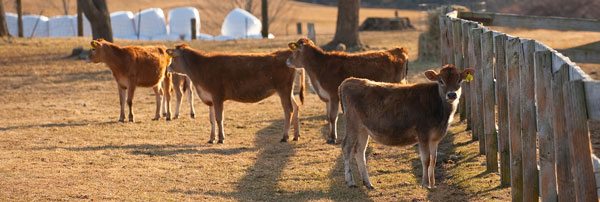
University of New Hampshire boasts a 300-acre Organic Dairy Research farm that consists of crops, woodlands, pastures, and forage production. To add, they also have the Kingman Farm, which serves as a research facility for projects like horticultural and agronomic crop research, wildlife management, and oyster restoration efforts in the Great Bay.
The University of New Hampshire also has a hand in the community with their Farm to School program which was introduced in 2003. They provide locally grown apples and cider to students enrolled in public schools in the area. This eventually developed into the Get Smart Eat Local 10 District Project, which is a collaboration between wholesale farms in the region and school districts, to provide local foods to schools.
College of the Atlantic
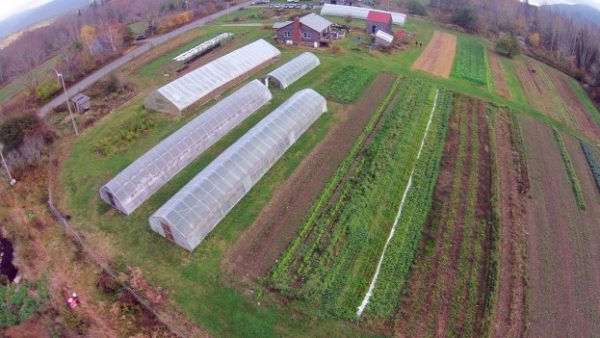
Beech Hill Farm at the College of the Atlantic takes pride in its glacier-tilled soils that cover a 73-acre farm located in the town of Mount Desert. The College of the Atlantic has owned the Beech Farm since 1999 and runs it in order to “prevent the conversion of open lands on prime agricultural soils to development, or other land uses, that would limit their productivity and availability for agricultural uses in the future.” Since the acquisition, The College of the Atlantic has strived to create a hands-on educational resource for students, farmers, and community members. There are classes offered to College of Atlantic students that allow them to design, and participate in independent studies, group studies, and final projects on the farm. Work study positions, and volunteer opportunities are also available on the farm. To further connect the farm with the community, the college created the Share the Harvest program, which offers organic food to food banks on Mount Desert Island.


